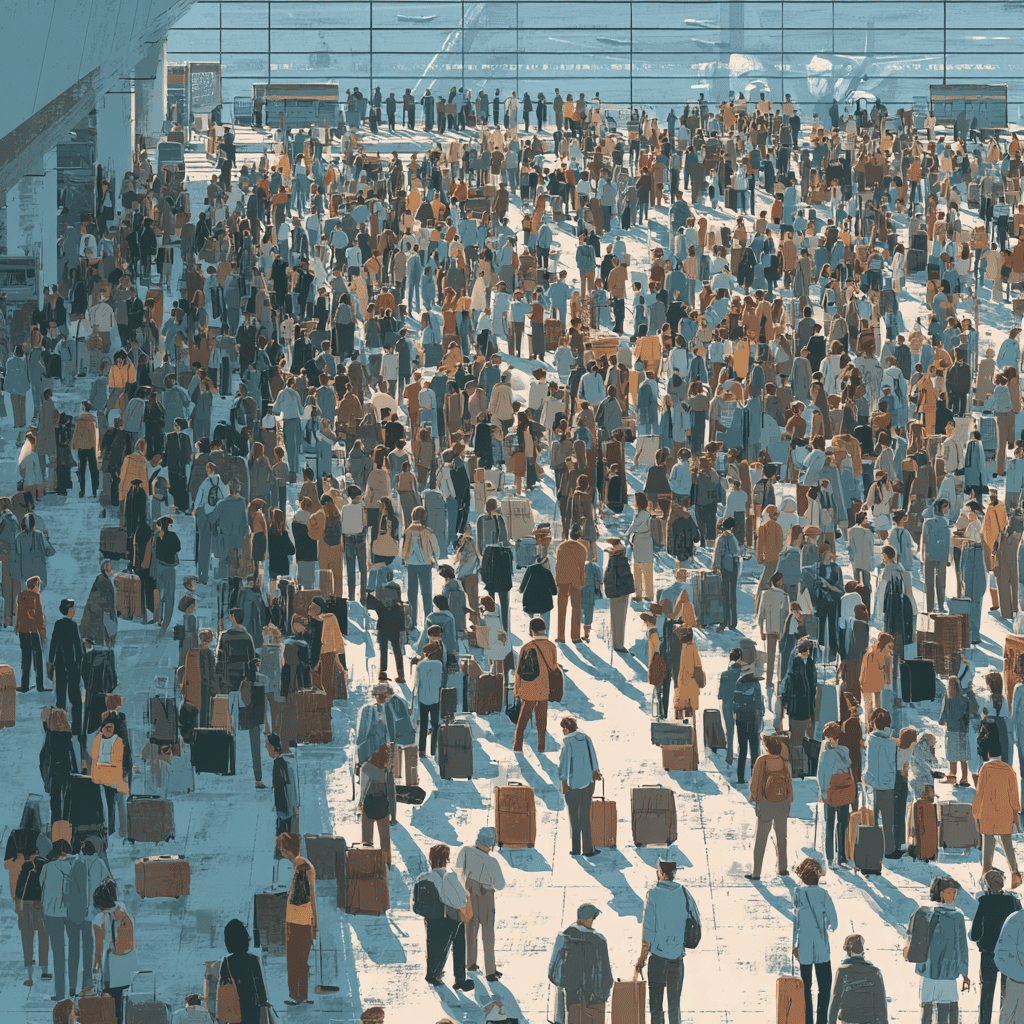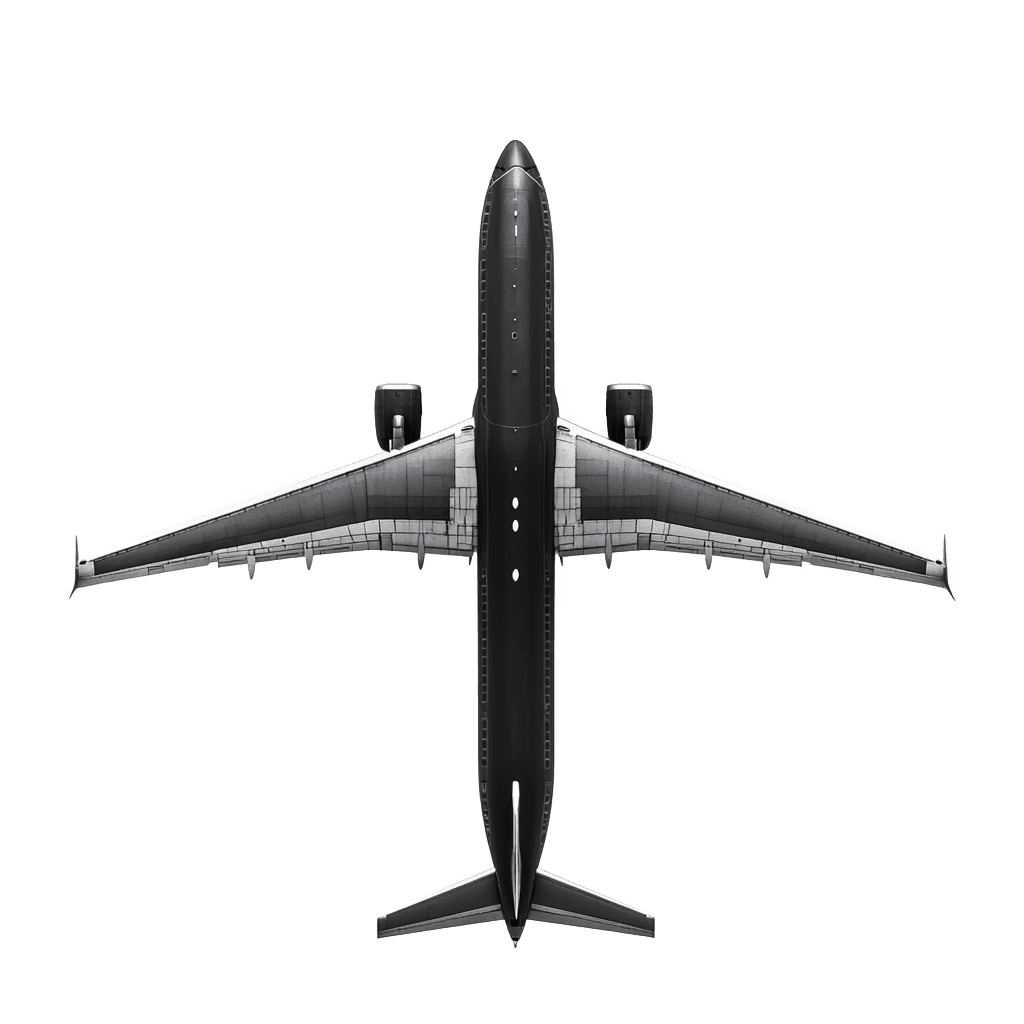Table of Contents
What to Do If You’re Rebooked on a Different Airline
Few travel surprises are as jarring as finding out—sometimes at the last minute—that your airline has rebooked you on a completely different carrier. Whether due to weather delays, mechanical issues, or overbooking, this situation is more common than many travelers realize. Airlines often have interline agreements that allow them to transfer passengers to other airlines, ensuring you still reach your destination.
In 2023, the U.S. Department of Transportation (DOT) reported over 1.5 million flight cancellations across major U.S. airlines, with thousands of passengers rebooked on alternate carriers to minimize disruption (source). While it can be frustrating, knowing what to do can turn a stressful situation into a manageable detour. Below are expert tips, common scenarios, and strategies for navigating a rebooking, so you can get back on track as smoothly as possible.
5-Step Quick Checklist
- Confirm your new flight details — Double-check the new airline, flight number, and departure time. Contact the airline directly to confirm your booking.
- Check baggage policies — Verify whether your bags will transfer automatically and if extra fees apply.
- Understand your rights — If the new flight is unacceptable, request an alternative or a refund.
- Prepare for check-in — Download the new airline’s app and bring a copy of your rebooking confirmation.
- Review perks and compensation — Ask about seat changes, loyalty miles, and possible vouchers or reimbursements.
Step 1: Confirm the New Booking Details
The first step is to verify every detail of your updated itinerary:
- New airline and flight number
- Departure and arrival times (which can change significantly)
- Airport terminals or gates (especially if the carrier is based in another terminal)
- Connection details or added layovers
Common Scenario: Sometimes the new airline’s system may not receive all your booking details due to technical delays in data transfer. To avoid surprises, call the new carrier immediately or use their website/app to confirm your seat assignment and ticket status. This simple step prevents last-minute confusion at the gate.
Step 2: Verify Baggage Transfers and Fees
Baggage is one of the trickiest parts of an interline rebooking. Policies differ between carriers, and budget airlines are especially known for stricter rules.
Questions to ask:
- Will your checked bags transfer automatically, or do you need to re-check them?
- Are additional baggage fees applicable with the new airline?
- Do their carry-on size or weight limits differ?
Common Scenario: If you are moved from a full-service carrier (e.g., Delta) to a budget airline (e.g., Spirit), your original baggage allowance may not be honored. In such cases, keep all receipts for additional fees and contact your original airline afterward for reimbursement.

Typical Baggage Policies When Rebooked
| Airline Type | Checked Bag Transfer | Extra Fees Likely? | Carry-On Rules Change? |
|---|---|---|---|
| Full-Service | Usually Automatic | Rare | Rare |
| Budget Carrier | Often Manual | Likely | Yes, stricter limits |
| International Mix | Case by Case | Possible | Depends on carrier |
Step 3: Know Your Rights and Options
Airlines rebook passengers to fulfill their “duty of care,” but you are not obligated to accept the first option they provide.
When you can push back:
- If the new flight departs several hours earlier or later than your original schedule.
- If the rebooked airline offers a lower class of service or adds unnecessary layovers.
- If the rerouting significantly changes your arrival plans.
Common Scenario: If you are rebooked on a flight that adds extra layovers or significantly delays your arrival, you can request a more convenient alternative or even a full refund. The U.S. Department of Transportation confirms that refunds are required if a canceled or changed flight no longer meets your needs—even on nonrefundable tickets.
Step 4: Prepare for Check-In with the New Airline
Once rebooked, you’ll need to check in with the new carrier. Your old boarding pass and booking confirmation won’t work.
To avoid surprises:
- Download the new airline’s app to check in or manage your booking.
- Arrive early, as some systems take time to sync rebooked reservations.
- Keep a printed or digital copy of your rebooking email to show airport staff if needed.
Common Scenario: If the new airline’s staff doesn’t see your reservation right away, having the rebooking confirmation email and booking code ready can speed up the process and avoid check-in delays.
Step 5: Keep Track of Loyalty Points and Seating
If you had a preferred seat, upgrade, or earned benefits on your original airline, those perks may not transfer.
- Ask the new airline about available seat assignments.
- Check if they have an alliance or codeshare with your original carrier (e.g., Star Alliance or OneWorld), as this can help preserve mileage earnings and some benefits.
- Be prepared that Wi-Fi passes, extra-legroom seats, or complimentary upgrades might not carry over.
Common Scenario: If you booked a premium seat and are moved to a standard seat on the new carrier, ask the original airline for a refund of the seat selection fee. Many airlines will honor this request if the downgrade was unavoidable.
Chart: Common Seat & Loyalty Scenarios When Rebooked
| Scenario | Likely Outcome | What You Should Do |
|---|---|---|
| Prepaid Seat Selection | Might be lost | Request similar seat ASAP |
| Loyalty Miles | Not guaranteed | Check alliance partnerships |
| Upgrades (e.g., Business) | Rarely honored | Ask for refund/credit |
Step 6: Know When Compensation Applies
While U.S. airlines don’t owe you direct cash compensation for being rebooked, you could still qualify for assistance in certain situations.
Possible entitlements include:
- Meal or hotel vouchers for overnight delays.
- Refunds for prepaid activities or connections missed due to the disruption.
- Compensation under EU Regulation 261 if you’re flying from or within the EU (e.g., delays over 3 hours caused by the airline) (more info).
Common Scenario: If you incur extra costs like hotel stays or missed tours due to the change, save all receipts and submit a reimbursement claim to the airline or your travel insurance provider.
How to Avoid Being Rebooked in the First Place
While you can’t control every factor, a few proactive steps can greatly reduce the chance of being rebooked:
- Check in early: Passengers who check in late are more likely to be bumped during overbooking situations.
- Choose non-stop flights: Connecting flights create more opportunities for delays or missed connections that lead to rebookings.
- Avoid peak travel times: Busy holidays and peak travel seasons have a higher risk of overbooking.
- Book morning flights: Morning flights tend to have fewer delays, as they’re less affected by cascading delays from earlier flights.
- Monitor weather and flight alerts: Apps like FlightAware or airline notifications can give you an early warning of disruptions.
- Use travel insurance with trip interruption coverage: Some plans will cover rebooking fees, hotels, and meals if you’re stranded.
Frequently Asked Questions (FAQs)
1. Why would an airline rebook me on a different carrier?
It usually happens when your original flight is canceled, severely delayed, overbooked, or grounded due to weather or mechanical issues. Airlines work together through interline agreements to keep passengers moving.
2. Can I refuse the new airline and request something else?
Yes. If the alternative flight or airline doesn’t meet your needs, you can request another flight, a different routing, or a full refund.
3. Do I get frequent flyer miles if I’m rebooked?
Not always. If the new airline isn’t part of the same alliance or partnership, you may lose mileage credit. You can sometimes claim missing miles by submitting your boarding pass and itinerary to your loyalty program.
4. What happens if my checked luggage doesn’t transfer?
If baggage isn’t automatically transferred, you’ll need to pick it up at baggage claim and re-check it with the new airline. Always allow extra time when switching carriers.
Final Thoughts
Being rebooked on a different airline can feel like a hassle, but it’s often the fastest way to salvage your trip. By double-checking your new itinerary, understanding baggage policies, and knowing your rights, you can avoid unnecessary stress and even turn a negative experience into a smoother travel solution.
Next time this happens, stay calm and proactive—sometimes these unexpected changes lead to discovering new carriers, lounges, or even better service than your original plan.
